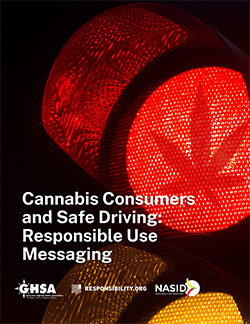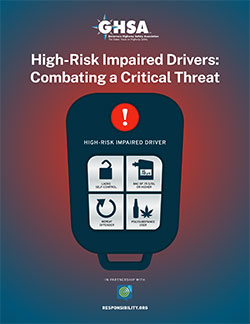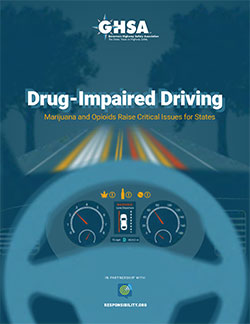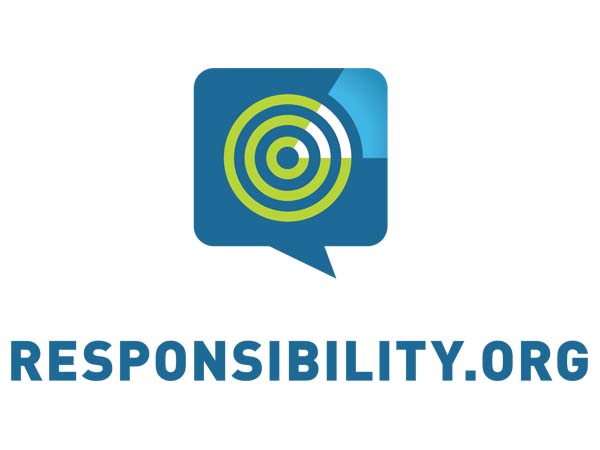
The Foundation for Advancing Alcohol Responsibility (Responsibility.org) leads the fight to eliminate drunk driving and underage drinking and promotes responsible decision-making regarding alcohol consumption. GHSA and Responsibility.org expanded their focus to include the growing issue of drugged driving and multi-substance impaired (alcohol and drugs) driving. GHSA and Responsibility.org partner to provide resources to both State Highway Safety Offices (SHSOs) and law enforcement agencies.
GHSA is partnering with NASID to develop a special report directed to the states and their partners that will identify best practices in marijuana and driving messaging. Examples of evidence-based initiatives, partnering tips and recommendations will also be included. The report will be released later this year.
State Grants
GHSA and Responsibility.org provide grants to states for training programs that support the arrest and prosecution of drug-impaired drivers. By putting more Drug Recognition Experts (DREs) and Advanced Roadside Impaired Driving Enforcement (ARIDE)-certified officers on the road, states are better able to ensure that drugged drivers are off the road. In 2020, the grant program was expanded to include initiatives that address recommendations in the GHSA report, High-Risk Impaired Drivers: Combating a Critical Threat.
Since 2016, Responsibility.org has awarded more than $1.1M to states.
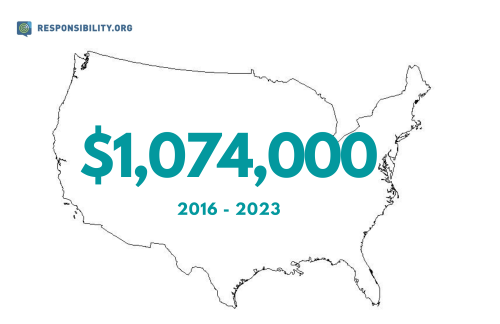
2024
In 2024, grants were awarded to Colorado, Idaho and Missouri to improve their ability to detect impaired drivers and remove them from the road in the following ways:
- Colorado: As Colorado works to detect all types of substances involved in impaired driving, more drivers are refusing to provide a breath or blood sample after DUI arrests. Refusing a toxicology sample is against Colorado’s Express Consent Law. The Colorado Department of Transportation and the Colorado Task Force on Drunk and Impaired Driving will use grant funding to achieve greater compliance with the law by raising awareness of the consequences of refusing a toxicological test.
- Idaho: Drug Recognition Experts (DREs) – police officers trained to recognize drug impairment in drivers – play a crucial role in convicting drug-impaired drivers, a trend that is increasing in northern Idaho due to neighboring states legalizing cannabis and the rise in fentanyl/meth use. The Idaho Transportation Department Office of Highway Safety, in collaboration with the North Idaho DUI Task Force, is using grant funding to enhance the number of trained DRE officers and phlebotomists in the region. This will equip officers with skills to detect multi-substance impaired drivers from our roadways.
- Missouri: Missouri’s Drug Recognition Program educates law enforcement officers on identifying and detecting impaired driving. Due to the rise of multi-substance impairment, program training now needs to include recognizing and detecting cannabis impairment. To address this need, the Missouri Department of Transportation’s Highway Safety and Traffic Division will partner with Extract-ED to organize and host “green labs” throughout the state. These events, where volunteers consume a controlled dose of cannabis and allow law enforcement to monitor the effects, help police learn to better recognize the signs of cannabis impairment. No state or federal funding will be utilized to purchase cannabis product for the consumers.
2023
In 2023, grants were awarded to Missouri, Maryland, Ohio and Pennsylvania.
2022
In 2022, grants were awarded to Connecticut, Illinois, Louisiana, Maryland and Nevada.
2021
In 2021, grants were awarded to Georgia, Louisiana, Maryland and Wisconsin.
In addition to providing competitive grants to states, Responsibility.org provided funding to the Texas Department of Transportation's Highway Safety Office to implement an impaired driving campaign aimed at college football fans that promote ride-hailing services through outreach events and social media.

Learn how prior year grant recipients used their funding by clicking the links below:
2020
2019
2018
2017
2016
Publications and Guidance for States
In July 2022, GHSA and Responsibility.org published a report with the National Alliance to Stop Impaired Driving (NASID), Cannabis Consumers and Safe Driving: Responsible Use Messaging, providing guidance to states and their partners through identifying best practices in marijuana and driving messaging. Examples of evidence-based initiatives, partnering tips and recommendations are included on the types of messages that do and don’t work.
In December 2019, GHSA released High-Risk Impaired Drivers: Combating a Critical Threat, a Responsibility.org-funded report focusing on the challenges and opportunities associated with the high-risk impaired driver — a person who lacks the restraint or self-control to resist driving impaired. The report was unveiled at a Capitol Hill education event and via a national webinar conducted for SHSOs, their partners and stakeholders. In conjunction with the report, Responsibility.org also launched the STOPHRID.org website, which outlines a six-step process to help communities rid our roads of impaired driving offenders. The site also features a tool kit with checklists, videos, infographics, guidance documents and more.
GHSA and Responsibility.org also published Drug-Impaired Driving: Marijuana and Opioids Raise Critical Issues for States, which analyzes the latest-available data on drugged driving and provides an in-depth look at the impact of marijuana and opioids on driving, and Drug-Impaired Driving: A Guide for States, which examines research, data and state programs addressing this complex issue and recommends increased training for law enforcement officers.
To learn more, visit www.responsibility.org.
In 2021, Responsibility.org and GHSA awarded grant funding for the Wisconsin Department of Transportation (WisDOT) to increase education and the number of officers trained as Drug Recognition Experts (DREs).
In 2021, Responsibility.org and GHSA awarded grant funding for the Wisconsin Department of Transportation (WisDOT) to increase education and the number of officers trained as Drug Recognition Experts (DREs).
The Maryland Highway Safety Office was awarded grant funding from Responsibility.org & GHSA to certify officers & instructors as Drug Recognition Experts, conduct cannabis & intoxication impaired driving labs & reduce the toxicology backlog by outsourcing the analysis of blood alcohol samples.
The Maryland Highway Safety Office was awarded grant funding from Responsibility.org & GHSA to certify officers & instructors as Drug Recognition Experts, conduct cannabis & intoxication impaired driving labs & reduce the toxicology backlog by outsourcing the analysis of blood alcohol samples.
In 2021, the Louisiana Highway Safety Commission (LHSC) was awarded grant funding from Responsibility.org and GHSA to offer municipal and state judges the Computerized Assessment Referral System (CARS) screening and assessment tool.
In 2021, the Louisiana Highway Safety Commission (LHSC) was awarded grant funding from Responsibility.org and GHSA to offer municipal and state judges the Computerized Assessment Referral System (CARS) screening and assessment tool.
Responsibility.org and GHSA awarded grant funding to the Georgia Office of Highway Safety (GOHS) to establish a phlebotomy program to train law enforcement officers to be qualified phlebotomists.
Responsibility.org and GHSA awarded grant funding to the Georgia Office of Highway Safety (GOHS) to establish a phlebotomy program to train law enforcement officers to be qualified phlebotomists.
Through a grant from Responsibility.org and GHSA, the Washington Traffic Safety Commission (WTSC) established a Commercial Motor Vehicle (CMV) DUI Training Pilot Program for law enforcement to ensure officers have the skills and tools necessary to safely stop trucks and other large vehicles.
Through a grant from Responsibility.org and GHSA, the Washington Traffic Safety Commission (WTSC) established a Commercial Motor Vehicle (CMV) DUI Training Pilot Program for law enforcement to ensure officers have the skills and tools necessary to safely stop trucks and other large vehicles.

